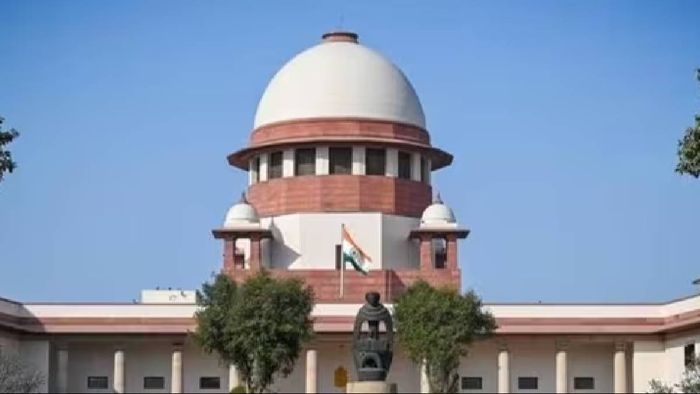Supreme Court grants final chance to states on minority identification, seeks centre's report
A bench comprising Justices Sanjiv Khanna and Dipankar Datta presided over the hearing, which involved several public interest litigation (PIL) petitions seeking a directive to the central government to define the term 'minority' and establish comprehensive guidelines for the identification of minorities at the district level.

- Jan 12, 2024,
- Updated Jan 12, 2024, 10:24 PM IST
The Supreme Court of India, while hearing a batch of petitions related to the district-wise identification of minorities, has granted one final opportunity to states to submit their responses. The court expressed its displeasure over certain state governments' failure to comply with earlier reminders and issued a stern warning during the proceedings held on January 12.
A bench comprising Justices Sanjiv Khanna and Dipankar Datta presided over the hearing, which involved several public interest litigation (PIL) petitions seeking a directive to the central government to define the term 'minority' and establish comprehensive guidelines for the identification of minorities at the district level.
The court questioned the delay in responses from some states despite previous reminders, with Justice Khanna warning of imposing costs on non-compliant states. He stated, "Which are the states which have not filed a reply or furnished data? We'll now have to impose costs." Despite the stern stance, the bench decided to grant another opportunity for non-compliant state governments to submit responses within six weeks. Failure to comply within the stipulated timeline would result in a penalty of Rs 10,000 for the respective state governments. The Union of India has also been instructed to file a status report two weeks before the next hearing date.
The court, adjourning the hearing until April, pronounced, "Relist on a non-miscellaneous day in April 2024. One last opportunity is granted to state governments to either furnish details or data to the central government or file an affidavit in this court. In case this is not done within the aforesaid time, the concerned state government shall pay a cost of Rs 10,000. The Union of India will file their status report at least two weeks before the next date of hearing."
This development follows a similar warning issued by the top court in April last year, granting a final opportunity to state governments and union territories to submit their responses regarding the identification and notification of religious and linguistic minorities. The court had warned of presuming the lack of response as the state government having nothing to say on the matter. Unfortunately, some states failed to file their responses, leading to the recent decision.
In January 2023, the Centre had submitted a report with the views of states and union territories in the case. The public interest litigants are seeking guidelines for the identification of minorities at the district level, ensuring benefits and protections guaranteed under Articles 29 and 30 of the Constitution for socially, economically, politically non-dominant and numerically inferior religious and linguistic groups.
The litigants have also challenged the constitutional validity of Section 2(c) of the National Commission for Minorities Act, 1992, which empowers the Centre to notify minorities. Notably, the union government's changing stance on notifying Hindus as minorities in states where they constitute a numeric minority has been a point of contention. The Supreme Court had expressed disappointment with the shifting positions and directed the government to file a report on the consultative process with state governments.